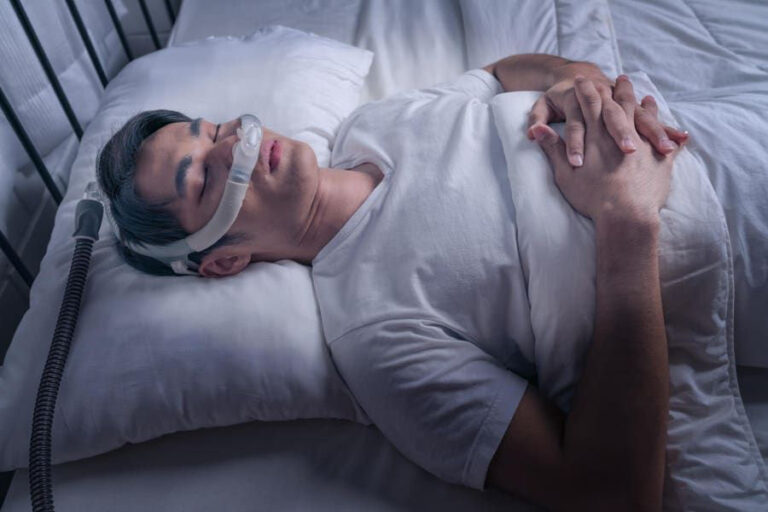Does Modafinil Cause Body Odor? What the Science Suggests
Modafinil is a well-known prescription medication used to promote wakefulness in individuals with narcolepsy, sleep apnea, and shift work sleep disorder. While its cognitive-enhancing effects have gained popularity, some users have raised a peculiar concern: does modafinil cause body odor? Although this side effect is not officially recognized, anecdotal accounts suggest a potential link.
Understanding Body Odor: A Complex Biochemical Process
Human body odor primarily comes from the breakdown of otherwise odorless sweat compounds by skin bacteria, especially in the armpits. Sweat itself has no smell; odor develops when microbial enzymes metabolize the compounds released by apocrine glands.
“Odorants are secreted as amino acid conjugates and released via bacterial enzymatic activity. Corynebacteria are key players in this mechanism.”
(Natsch, 2015)
Key odorants include 3-methyl-3-sulfanylhexanol (3M3SH), a sulfur-containing compound associated with strong axillary odor. These precursors vary in intensity across individuals and are strongly influenced by genetic factors, such as variations in the ABCC11 gene.
Genetic Variability: Why Some People May Smell More Than Others
Body odor isn’t universal. A single-nucleotide polymorphism (SNP) in the ABCC11 gene determines whether someone produces the odorous precursors associated with strong armpit smell.
“Individuals with the AA genotype (common among East Asians) have reduced secretion of these odorants and often report little to no body odor.”
(Hamada et al., 2014)
This genetic variation could partly explain why only a subset of modafinil users notice a change in body odor, since some individuals may already be predisposed to stronger odors.
What Is Modafinil, and How Does It Affect the Body?
Modafinil (Provigil) is a central nervous system stimulant that promotes alertness through dopaminergic, adrenergic, and possibly orexinergic pathways.
“While the exact mechanism remains unclear, modafinil inhibits dopamine reuptake and influences central thermoregulation.”
(FDA, 2007)
One lesser-known physiological effect is its impact on sweating, which plays a critical role in how body odor develops.
How Modafinil Might Affect Body Odor
🔬 Reduced Sweating May Alter Odor Release
In a controlled human study, modafinil was shown to significantly reduce sweat rate during heat exposure.
“Modafinil decreased sweating and increased heat storage, potentially due to CNS-mediated suppression of thermoregulatory responses.”
(Launay et al., 2002)
Less sweating means that the natural “carrier” for odor molecules is reduced. This could either:
- Concentrate existing odorants on the skin (leading to a more pungent smell), or
- Alter microbial growth, changing the type or intensity of odor.
🧠 Neurological Pathways May Influence Scent Perception
The brain plays a surprising role in how we experience smell. Modafinil’s action on the central nervous system could potentially affect the perception or production of body odor.
“The human brain extracts social and biological cues from body odors, and perception varies by emotional and cognitive state.”
(Lundström & Olsson, 2010)
In other words, the user might not smell different but may interpret their own scent differently because of heightened awareness or changes in olfactory sensitivity.
Anecdotal Reports: Is There a Pattern?
Numerous users across forums like Reddit and modafinil communities report experiencing a “chemical,” “sour,” or “metallic” body odor within hours or days of taking modafinil.
While anecdotal, many of these accounts share these features:
- Odor appears within 1–3 days of use
- Often described as unusual or “not natural”
- Sometimes only noticeable by the user themselves
- Reverses after stopping the drug
These self-reports, while subjective, may reflect real individual responses possibly tied to hydration, hygiene, genetics, or modafinil dosage.
Can Medication Really Change How You Smell? A Historical Clue
Modafinil isn’t the only drug linked to body odor. A 1960 study found that another psychoactive compound noticeably reduced unpleasant body odor in schizophrenic patients.
“The distinct odor disappeared when patients were given Sch-6673 and returned once the drug was discontinued.”
(Gouldman & Rutherford, 1960)
While this was a different compound and context, it illustrates that medications can and do influence body chemistry, including scent.
Final Verdict: Is Body Odor a Side Effect of Modafinil?
Currently, no formal clinical studies or FDA documentation list body odor as a known side effect of modafinil.
“Body odor is not mentioned in the official labeling for modafinil (Provigil), though its impact on thermoregulation is acknowledged.”
(FDA, 2007)
However, there are plausible biological and neurological mechanisms, along with enough consistent anecdotal reports, to warrant attention.
References
- U.S. Food and Drug Administration. (2007). PROVIGIL® (modafinil) tablets [Prescribing information]. U.S. Department of Health and Human Services. https://www.accessdata.fda.gov/drugsatfda_docs/label/2007/020717s020s013s018lbl.pdf
- Launay, J.-C., Besnard, Y., Guinet, A., Bessard, G., Raphel, C., & Savourey, G. (2002). Effects of modafinil on heat thermoregulatory responses in humans at rest. Canadian Journal of Physiology and Pharmacology, 80(8), 796–803. https://doi.org/10.1139/y02-092
- Gouldman, C., & Rutherford, A. (1960). Effects of a drug on the body odor of the chronically mentally ill. American Journal of Psychiatry, 117(4), 354–355. https://doi.org/10.1176/ajp.117.4.354
- Hamada, K., Haruyama, S., Yamaguchi, T., Yamamoto, K., Hiromasa, K., Yoshioka, M., Nishio, D., & Nakamura, M. (2014). What determines human body odour? Experimental Dermatology, 23(5), 316–317. https://doi.org/10.1111/exd.12380
- Lundström, J. N., & Olsson, M. J. (2010). Functional neuronal processing of human body odors. Vitamins and Hormones, 83, 1–23. https://doi.org/10.1016/S0083-6729(10)83001-8
- Natsch, A. (2015). What makes us smell: The biochemistry of body odour and the design of new deodorant ingredients. CHIMIA International Journal for Chemistry, 69(7–8), 414–420. https://doi.org/10.2533/chimia.2015.414








